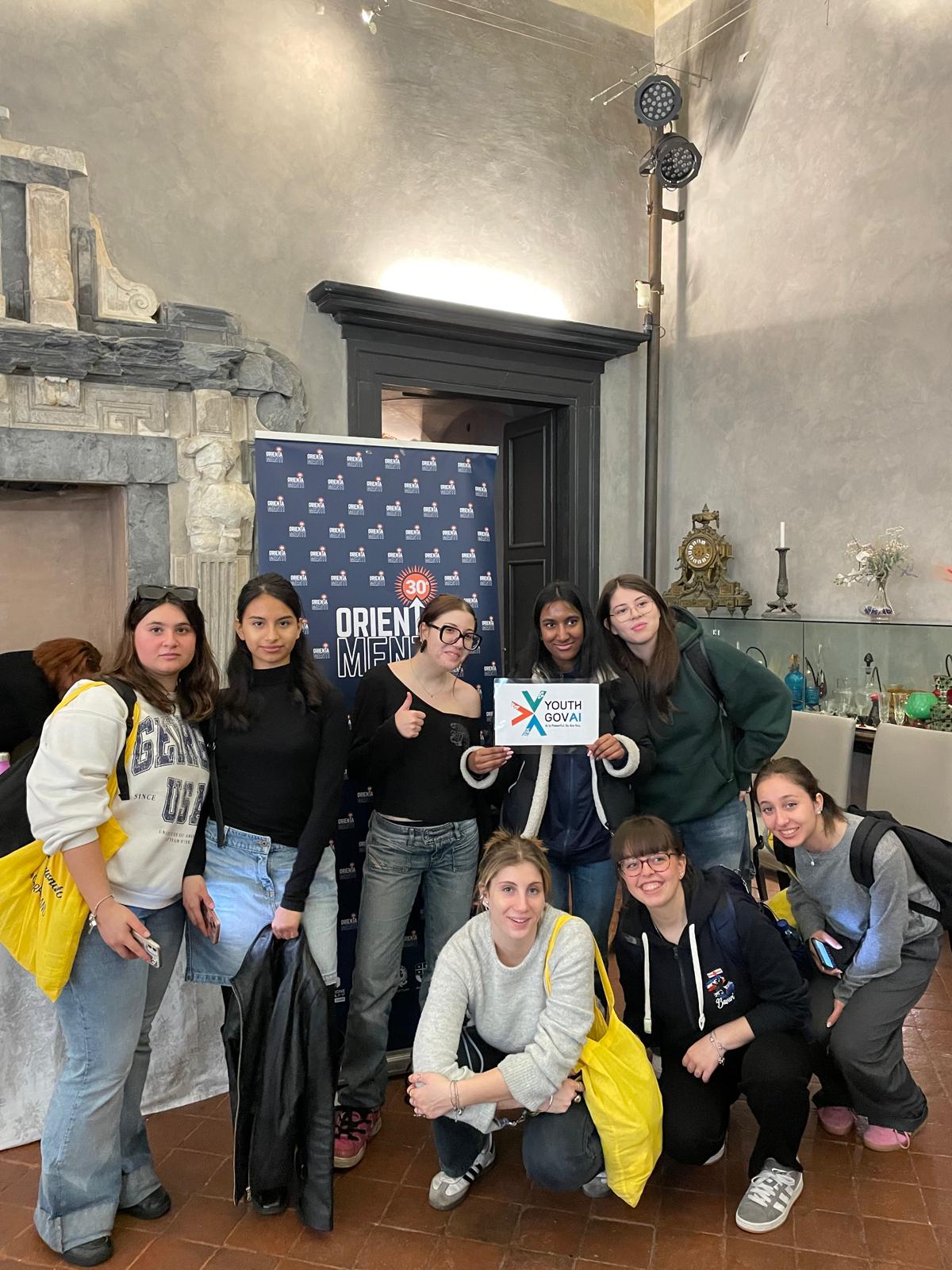On April 15, 2025, the historic heart of Genoa transformed into a vibrant, open-air laboratory of tradition, innovation, and civic engagement. As part of the national celebrations for the Giornata del Made in Italy, the city hosted “Made in Italy – Confartigianato – Orientamenti”, a large-scale urban treasure hunt that brought together over 400 students and 30 local artisanal enterprises in a journey through the rich tapestry of Italian craftsmanship.
Organised by Confartigianato Genova, in collaboration with the Orientamenti programme and the Genoa Chamber of Commerce, the event was designed to connect younger generations with the legacy of Italian “saper fare” – that unique blend of technical mastery, cultural heritage, and entrepreneurial spirit that defines the artisanal sector.
Against this dynamic backdrop, ALFA Liguria took the opportunity to bring the YouthGovAI project directly into the public sphere. As the regional agency responsible for vocational education, training, and guidance, ALFA Liguria joined the initiative with a dedicated outreach team, engaging participating students in a series of interactive activities that linked the traditional world of craftsmanship with the contemporary challenges posed by artificial intelligence.
Throughout the day, ALFA’s team met with groups of students as they navigated the city’s narrow alleyways and storied botteghe, offering them not only information on the YouthGovAI project, but also concrete opportunities to reflect on how AI is already shaping—and will increasingly shape—their educational and professional futures. Through short dialogues, interactive prompts, and contextual explanations, students explored what AI really is, how it differs from traditional tools and machines, and how its presence in their lives often goes unnoticed despite its growing influence.
Students were invited to respond to the national YouthGovAI survey, which gathers data on youth familiarity with, usage of, and attitudes toward AI technologies. The survey, active between March and May 2025, forms a core component of the Italian contribution to the European YouthGovAI white paper. The data collected during the event in Genoa has enriched the national dataset with a diverse and spontaneous sample of youth voices, many of whom were encountering these questions for the first time outside of a formal classroom setting.
This interaction between artisanal knowledge and digital awareness proved to be especially significant. While the event was primarily focused on preserving and promoting traditional vocations, the inclusion of the YouthGovAI activities allowed for a forward-looking reflection on the intersection of heritage and innovation. As young people visited craft workshops, engaged with tradespeople, and answered questions on digital platforms, they were prompted to consider how AI technologies might transform—not replace—the world of craftsmanship: from design and prototyping to customer interaction, logistics, and sustainability.
Moreover, the event provided an ideal setting for reinforcing one of YouthGovAI’s central messages: that AI governance and education must take place where youth are—in schools, yes, but also in their communities, their cultural spaces, and their moments of discovery. The informal, curiosity-driven atmosphere of the treasure hunt enabled a form of AI literacy that was both accessible and contextually meaningful, showing that civic education on technology can—and should—go hand in hand with experiences of cultural and professional exploration.
The success of the dissemination during this event also reflects ALFA Liguria’s broader strategic vision: to act as a bridge between European innovation frameworks and local educational ecosystems, ensuring that young people across all backgrounds have access to the tools, knowledge, and agency required to navigate and shape the digital transitions of tomorrow.
As the YouthGovAI project continues its rollout across Europe, the Genoa treasure hunt stands as a model for place-based dissemination—where educational innovation meets local identity, and where discussions about the future of technology are grounded in the tangible realities of youth experience.
